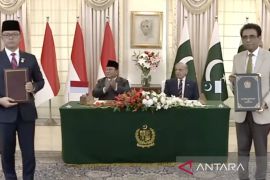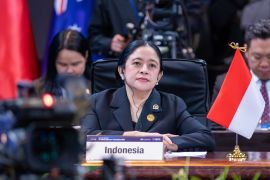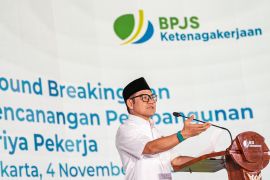"We believe in the government implementing a tax amnesty program. With regards to its results, we have trust in the government," the Vice Chairman of the House of Representatives Taufik Kurniawan said here on Thursday.
The lawmaker remarked that if the government can achieve a target of Rp165 trillion in taxes from tax redemptions and asset declarations of the repatriated money, it would be able to solve the budget deficit.
He further said the government should carry out the policy optimally in an attempt to bring back more funds from overseas to Indonesia.
The House of Representatives had earlier passed into law a tax amnesty and amended the 2016 state budget bills during a plenary session on Tuesday.
As expected, all 10 factions of the House, with the exception of the PKS faction gave approval, although a number of other factions also gave an endorsement with some notes of objections.
The faction of the Islamic party said that despite its rejection of a number of chapters in the draft laws it would bow to the majoritys decision.
Even the ruling Indonesian Democratic Party of Struggle (PDIP) reserved its approval with a note for the number of chapters in the bill questioning the sources of the funds and the amount of redemption tariffs.
The amended budget has a deficit of Rp296.7 trillion, with a target for state income and grants totaling Rp1,786.2 trillion and state expenditures totaling Rp2,082.9 trillion.
The state income includes Rp165 trillion in taxes expected from the repatriation of capital as a result of the tax amnesty that will be effective until March 2017.
The government also hopes to narrow the deficit by pruning unproductive expenses by government ministries and agencies.
With the House endorsement, President Joko Widodo is expected to validate and announce the new laws immediately.
The tax amnesty bill calls for amnesty for rich Indonesian taxpayers, who have parked funds abroad and are not paying taxes to the state.
With the amnesty they are expected to reveal their assets stashed abroad and bring them home to be invested in the country.
Those in the process of legal investigations or already convicted for tax fraud are not entitled to the amnesty.
The tax amnesty will be effective from the date of the law coming into force until March 31 in 2017, with a certain redemption tariff for capital repatriation, and a declaration of assets parked abroad. (*)
Editor: Heru Purwanto
Copyright © ANTARA 2016










